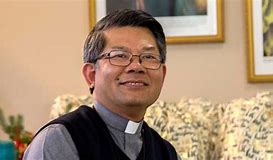On the Feast of St Joseph the Worker, the most significant issue affecting the work life of millions is the impact of COVID-19. An unprecedented number of people have lost their jobs or the income from their businesses. This is an incredibly traumatic experience for them and their families. It distressing to see so many people queuing to apply for assistance. We are mindful of everyone who is out of work, those whose businesses have been forced to close and of those whose regular income has plummeted while their bills remain.
At the same time, some are trying to find new patterns of working, including working from home. Those working in schools and universities have done an enormous amount of work at short notice to take classes and lectures online. Conferences, meetings and events are being cancelled or postponed and some reshaped to online events. Supermarket workers, delivery people and call centre staff are facing enormous pressure, large workloads and frustrated customers. IT people are in high demand! And then there is the demanding, high-risk but essential work of cleaners, health care professionals and personal carers.
All of this prompts us to think about what are really the most important things in life. Are people who do the things that are essential for our lives paid well? How do we treat them? Have we noticed that women are over-represented in the frontline occupations? When the health crisis is over, will we simply go back to working in the same ways that we did before? Or will we have learned new ways to work that enable us to better balance our work, family and community responsibilities? Will we adopt ways of working that encourage men as well as women to share more equitably in the unpaid work of caring?
Many of the jobs that require face-to-face human encounter were among the first to be lost with the introduction of physical distancing. Tourism, hospitality and retail jobs have been hit hard. Other jobs that can only be done face-to-face, with real, embodied human contact such as nursing, have become even more important. But they are also more risky for these workers now. We are grateful to our cleaners, health professionals and personal carers for the essential work that they do for the good of all of us.
We welcome efforts to support both workers and businesses,those seeking work and the ones struggling to simply survive from day to day. In any crisis, it is usually the poorest, the most vulnerable and the least powerful who suffer the worst. Casual employees, many contract employees and gig workers are not entitled to sick leave or carer’s leave. They are often unable to save from their earnings in order to cover periods of illness or inability to work.
Over and over the Scriptures encourage us to welcome and care for the “strangers” among us. Excluding asylum-seekers and temporary protection visa holders from government assistance is not only inhumane and unworthy of a decent society, it is also dangerous to public health at this time. Similarly, international students and non-residents on working visas are not eligible for income support. Would a good host, who invited guests to contribute to the economy by purchasing educational services or filling skills gaps, simply turn a blind eye to their needs at a time like this?
This major shock to our community, and our economy, could provide an opportunity to reset our thinking about how we support the poorest, most marginalised, and most vulnerable members of our community.
In a climate of fear, there is a tendency to narrow our circle. God calls us to a different way: working together, needing each other, being the body of Christ.
St Joseph, model of integrity and solidarity, inspire us to serve and to care for all.
(Drawn from Pastoral Letter by Bishop Vincent Long OFM Conv for the Feast of St Joseph the Worker, 2020)

